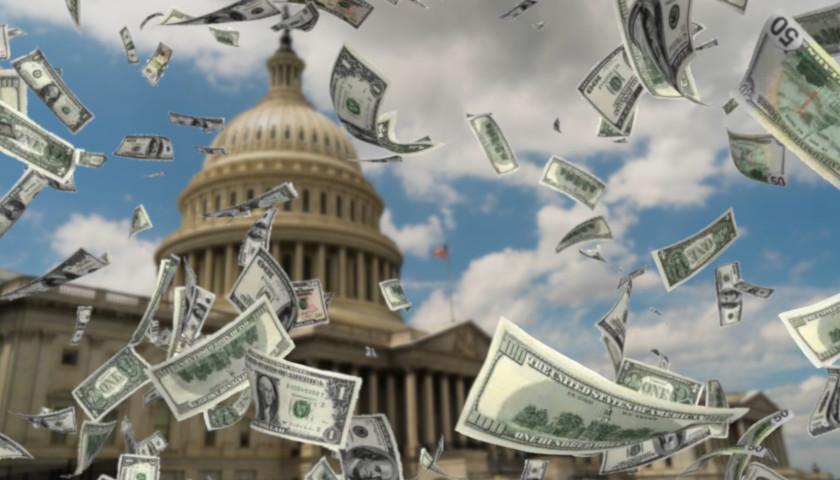A Tennessee judge ruled Tuesday that pro-life activist Paul Vaughn will not serve time in prison for trying to stop abortions from taking place at a Tennessee abortion clinic.
Read the full storyTag: United States Government
‘Wake-Up Call’: Top Credit Agency Downgrades U.S. Rating
One of the top international credit rating agencies has downgraded the United States government’s credit rating from the highest level of AAA down one tier to AA+, a serious economic signpost as U.S. debt continues to soar and deficits remain elevated.
Fitch Ratings made the decision, pointing to the U.S. government’s high national debt and deficits as well as an “erosion of governance.”
Read the full storyReport: Only Three Americans Who Suffered Injuries or Death from the COVID Shots Have Been Compensated Thus Far
As of April 1, the United States government has compensated only three Americans who suffered injuries or death due to the COVID-19 injections, a report from the Health Resources & Services Administration (HRSA) shows.
The payments to the three individuals, who were compensated through the Countermeasures Injury Compensation Program (CICP), were listed as $2,019.55 for anaphylaxis, $1,582.65 for myocarditis, and $1,032.69 for myocarditis.
Read the full storyCommentary: The Way Government Lost 15 Million Acres of Public Land in the United States
Leave it to the United States Government to lose track of almost three states worth of public land. Only an institution with so little incentive and ability to allocate resources for the betterment of human wellbeing could instantiate such a catastrophic waste of potential.
The following is a story of an engineer named Eric Siegfried, a Montana man who caught public officials in almost unimaginable levels of incompetence and waste. It is also a cautionary tale about the way extreme misallocations of resources are the predictable outcome of America’s current form of land use governance, which systematically severs control over certain resources from anyone equipped to use them rationally and effectively.
Read the full storyChina’s Huawei Sues US Government Over Ban
Chinese tech giant Huawei has sued the U.S. government, arguing that legislation Congress passed last year that restricts its business in the United States is “unconstitutional.” The case, which analysts see more as a public relations move, is but the latest in an intensifying effort by the telecommunications company to fight U.S.security concerns, which Huawei argues are unfair and unfounded. In its lawsuit, Huawei argues that Section 889 of the National Defense Authorization Act violates the constitutional principles of separation of powers and due process. By singling out the company and punishing it without a trial, the company also argues that the law violates the Constitution’s bill of attainder clause. Section 889 bans federal agencies and their contractors from purchasing equipment and services from Huawei as well as another Chinese telecom company ZTE. It was signed into law last year by President Donald Trump. “This ban is not only unlawful but also harms both Huawei and U.S. consumers,” Huawei’s rotating chairman, Guo Ping, told reporters at news conference in Shenzhen on Thursday. “This section strips Huawei of its due process, violating the separation of powers principles, breaks U.S. legal traditions, and goes against the very nature of the constitution.” Guo…
Read the full story




